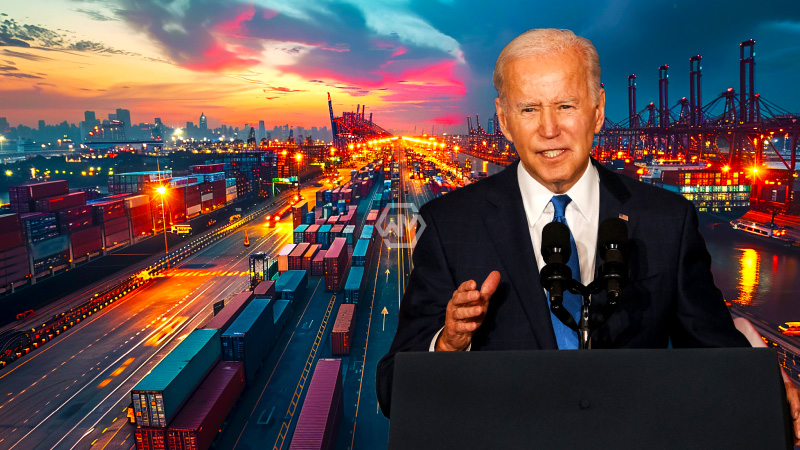- President Joe Biden has placed taxes on a variety of Chinese products.
- A greater proportion of exports from South Korea and Japan are going to the US at China’s disadvantage.
- According to Trinh Nguyen, this is a regional issue that reflects the trade war, which will likely pick up speed.
As part of an effort to stop what it refers to as Chinese “cheating,” President Joe Biden has placed taxes on a variety of Chinese products.
The adjustments, which are a part of a larger trade revamp for important Asian allies of the United States, including significant countries like South Korea and Japan, are anticipated to have an impact on around $18 billion in current annual imports. A greater proportion of exports from both nations are going to the US at China’s disadvantage.
Supply chains
The move is being driven by the US campaign, whereby multinational corporations are investing in Southeast Asia to evade US tariffs on China, and companies from Taiwan, Korea, and Japan are establishing plants in the US to benefit from subsidies for high-tech industries. According to Natixis economist Trinh Nguyen, this is a regional issue that reflects the trade war and subsequently the investment war, which will likely pick up speed.
China is not losing out entirely, as its own companies are investing more quickly in Southeast Asia to avoid tariffs and maintain their portion of supply chains. Still, the US is one of Asia’s major importers of goods.
The reluctance of foreign businesses to grow in China is growing; only 13% of European businesses that are now operating there consider it to be a top investment destination, which is less than half of the percentage for 2021.
Taiwan is at the epicenter of Cold War-style tensions between Washington, which has promised to defend the island in the event of an invasion, and Beijing, which sees the island as part of its sovereignty. China and Taiwan have historically had strong economic relations, but these links now seem to be eroding.
Taiwan’s export orders have long demonstrated that the US is the primary source of final demand for its produced goods; yet, the manufacturing process frequently passed through China, where early in this century, a wave of investment saw the establishment of factories by Taiwanese businesspeople.
According to recent data, Taiwan’s exports are beginning to completely avoid the second-biggest economy in the world. Additionally, new Taiwanese investment in China has drastically decreased, from a peak of $14.6 billion in 2010 to just $3 billion last year, despite record-breaking investments made elsewhere by island-based businesses.
In light of the pandemic and the trade war that US President Donald Trump started, this shows how global supply networks are realigning themselves.



